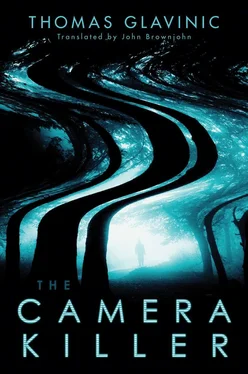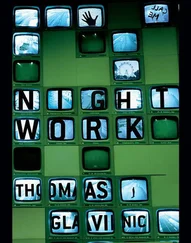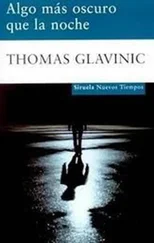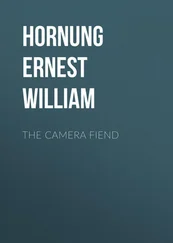A cry rang out from inside the house, and Eva came hurrying out in tears. She wanted to hear no more of this frightful business, she wailed, her voice breaking. Heinrich must give the subject a rest — she couldn’t bear it anymore. She was trembling all over, clenching her fists and sobbing. My partner put her arms around her. Heinrich, who continued to stand at the window, chewed the skin around his fingernails and said no more.
It was eight or ten minutes before Eva could re-devote herself to her hostess’s duties (washing up, etc.). My partner told Heinrich it really would be better if he exercised a little restraint where details of this terrible affair were concerned. It was getting on her nerves too — more so than anything she had read in the newspaper or seen on television for a long time.
This remark gave rise to a discussion of whether one was more affected by tragedies that occurred in one’s immediate or relatively immediate vicinity than by things that happened far away. Heinrich referred to weeping Yugoslavs and compared them to emaciated Ethiopian children. Another example he cited was an earthquake or volcanic eruption (he couldn’t exactly recall which) that had cost fifty thousand people their lives (the toll might have been higher or lower, his memory had failed him yet again). That catastrophe, which had occurred in some remote country in Asia or South America, had scarcely made the news with us. He himself had been far less horrified by it than he was now.
True, said my partner; she also tended to dismiss reports of an earthquake with some indifference, whereas the children’s murder had touched her deeply, probably because it had occurred so close at hand.
They were children, Sonja, Heinrich put in; that was an additional factor. I reminded the other two that we perceive tears only if we actually see them and that we have to be familiar with faces in order to be able to sense their pain. That fitted in with Heinrich’s theory, I said. Yugoslav faces were more familiar to us than those of swarthy desert dwellers. My partner and Heinrich said I was right.
Silence reigned for a while. All present watched the cats promenading across the yard or lying around and periodically scratching themselves.
My partner remarked that Heinrich hadn’t finished his account. Ghastly or not, she wanted to know how the other boy had met his death. Speaking in a low voice so as not to upset his wife again, Heinrich recounted what he had seen on the Internet. He did, however, preface this by mentioning that a special television program would be transmitted from the victims’ hometown, which was less than six miles away, in about twenty-five minutes’ time. He suggested driving over there. In view of Eva’s state of mind, we declined. After a moment’s reflection, Heinrich conceded that we were right.
Accordingly, he went on with his account. The dead boy was exhaustively filmed and then left lying in situ. The man shepherded the two surviving children through the forest and interviewed them with special reference to their brother’s death. At no point was he ever unfriendly. He didn’t hit them, just subjected them to psychological pressure until they yielded to his will and did all he demanded of them.
One particular task the cameraman set them was absurd, Heinrich said. When they were passing an isolated, seldom-used barn containing a small quantity of hay, he ordered them to set fire to the timber building. For this purpose, he turned the hog-tied brother loose. In some manner not described in detail, the killer’s threats had rendered the children so submissive that, when the barn was on fire, the older boy submitted to the leash once more instead of trying to escape with the other one. Once the man had filmed the blaze and questioned the surviving brothers about their emotions on camera, they withdrew into the depths of the forest once more.
The second murder was not long in coming. The eight-year-old was made to climb a tall tree. This he did only because the killer threatened to cut off the nine-year-old’s ears, underlining the words by holding a knife to his head. Then came a repetition of what had happened in the case of the first brother. The boy on the ground was filmed being asked if he was scared on behalf of his brother up the tree. The latter was also questioned about his feelings and reminded that his parents and his brother would die an incredibly painful death unless he jumped within the next ten minutes. He still had ten minutes — how did that strike him?
What a sadist, my partner put in — what an infamous criminal!
Another eight minutes, said Heinrich — or rather, said the cameraman. Another five. Another three… The camera was not turned off. At zero seconds, the boy jumped.
The silence that followed this account was broken by Heinrich’s injunction to watch the special broadcast. Eva refused and remained in the kitchen. The rest of us seated ourselves on the sofa and in an armchair in the living room. We propped our legs on the knee-high coffee table. Heinrich rose and went to get some chips, which he emptied into a big white bowl. He had only just sat down when he had to get up again. The sun was so low that the television screen reflected it and obscured the picture. After Heinrich had blacked out the windows with some drapes lying ready for the purpose, the program began.
The presenter gave a brief summary of what had happened, largely repeating what Heinrich had already told us. He added that the crime had evoked an incredible response, as viewers would shortly be able to see for themselves. Then came some live shots of the bereaved family’s hometown. A makeshift platform had been erected in Frauenkirchen’s main square and was ringed by thousands of spectators. Standing on it were a woman reporter and the weeping mayor. Easter bonfires were burning in the far distance. The television showed pictures of the crowd. Photographers with flashguns and television cameramen jostled and shouted wildly in its midst as they tried to go about their work.
Just look at this, Heinrich exclaimed — it’s insane.
The crowd briefly quieted when the reporter started to speak, but uproar broke out after she had said only a few words. People stormed the platform, thrust the reporter aside, and yelled at the camera, swearing to find the perpetrator and kill him. Everyone was shouting at once. We even heard two gunshots. A camera in an elevated position (possibly the window of a private residence rented for the occasion) panned over the mob until it located the gunman just as he loosed off a third round: An elderly man in hunter’s costume and a gray hat fired his rifle in the air. The shot did not, however, have a tranquilizing effect. The crowd continued to yell and rampage and shake their fists in the air with undiminished ferocity, not that it was clear whom their gestures were aimed at.
Just look, just look, Heinrich kept saying, and my partner exclaimed that the whole affair defied belief.
Since the woman reporter had now been swallowed up by the crowd, we were returned to the studio. The presenter said it was incredible what people were capable of. Heinrich wondered aloud if he meant the murderer or the mob. A psychologist was questioned about such details of the crime as were already known. The occupants of the living room promptly agreed that his remarks made no sense.
Cut to the seething mob again. The woman reporter had taken refuge in the mayor’s office. There she interviewed Frauenkirchen’s leading citizen and other persons who were locally prominent or acquainted with the victims’ family. The din in the background was clearly audible.
After that, reports of the hunt for the killer were broadcast from the studio. Various forensic sketches were shown and telephone numbers screened. The presenter stated that a full-scale manhunt had been initiated and several leads were being followed up. The Ministry of the Interior had, however, imposed a news blackout twenty minutes earlier. Viewers were referred to the News in Pictures program at 7:30 p.m., but if any significant new development occurred in the next few minutes or hours, the channel would go live.
Читать дальше












